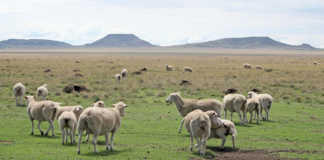About 380 game ranchers and wildlife industry stakeholders will attend Wildlife Ranching South Africa’s (WRSA) first annual congress at Castle de Wildt near Modimolle in Limpopo from 10 to 12 April 2013.
This is the first year that WRSA will be presenting a full-scale congress.
“With this congress, WRSA intends to show that our industry is well-positioned to positively influence international policy development on wildlife biodiversity and environmental management,” says Dr Gert Dry, WRSA President.
Dry said that the wildlife ranching industry was a major contributor to the national drive towards a green economy. “It provides more employment than other agricultural activities and therefore contributes to social development in rural areas. Furthermore, scientific breeding programmes and registration of breeding stock ensure the protection of biodiversity of species.”
Game breeders will also tackle industry challenges at the congress where invited experts will be sharing their knowledge with game farmers. These challenges range from regulatory bottlenecks regarding the issuing of permits for translocation, emergency immobilisation, parasite infection, land reform and the poaching of rhino and other species.
Experts include Dr Theo de Jager, deputy president of Agri SA; Ron Thomson, internationally renowned conservationist and John Hume, private rhino owner.
Dr Maretha van der Merwe and Prof. Louw Hoffman, both game meat experts, will lead a panel discussion on the implementation of a game meat scheme, which was expected to benefit consumers who will have access to a healthy alternative with regards to red meat protein.
In 2012, the wildlife industry ranked fifth largest in the agricultural sector, contributing nearly R10 billion to the country’s GDP. Of the estimated 21 million head of game in South Africa, 16 million are privately owned. The other five million are in state-owned parks and reserves. The average private game ranch provides habitat to 45 mammal species. Generally, game farms are situated on marginal agricultural land that is not suitable for other agricultural activities.












